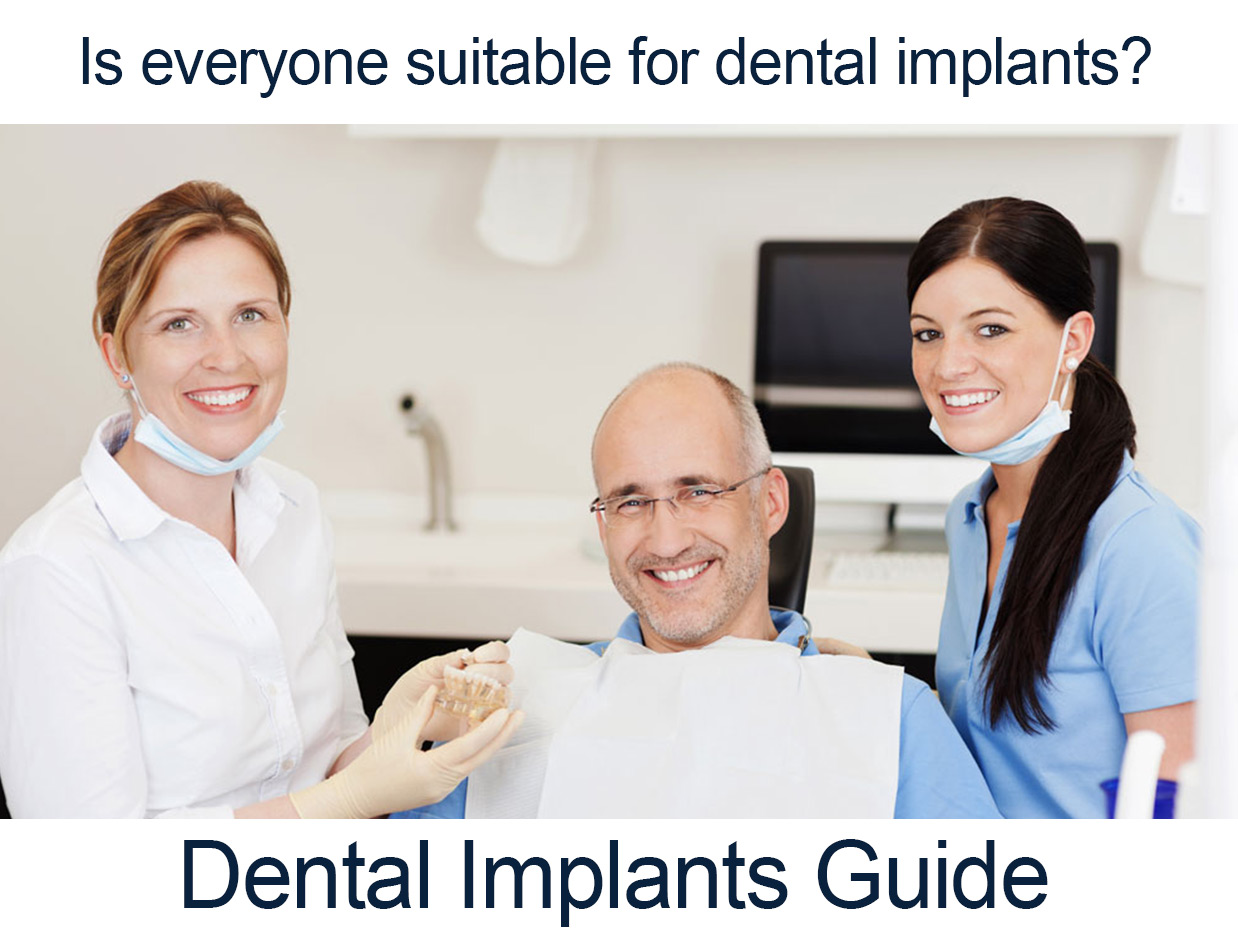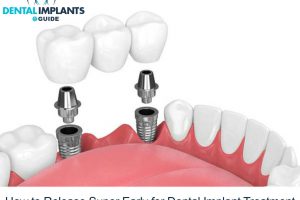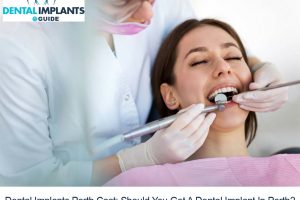Is everyone suitable for dental implants?
Is everyone suitable for dental implants?
If you are thinking of getting a dental implant, then you should consider certain groups that are not eligible to get one. These include: senior citizens, disabled people, Medicaid recipients and Medicare beneficiaries. Even if you fall in any one of these categories, you do not have to worry. There are other affordable dental implants options available.
High Quality Dental Implants Affordable Prices FREE Consultation

For senior citizens, the most likely group who is not eligible to get dental implants is those who are above 65 years old. A person who is a senior citizen but is not eligible to get dental implants can take the route of obtaining veneers instead. There are many things to consider when selecting this option.

Benefits of dental implants
- Prevents bone loss. When teeth are lost, bone mass in the jaw is lost as well.
- It’s a perfect match for your natural teeth. Dental implants are available in several different shapes and sizes.
- Bite Power is returned.
- Prevents the shape of your face from changing.
- Allows for a normal voice.
- Cavities aren’t going to happen.
- It’s easy to manage.
- There will be no embarrassing slippage.
What are the contraindications of dental implants?
Latest myocardial infarction and cerebrovascular injury, valvular prosthesis surgery, immunosuppression, bleeding problems, aggressive cancer therapy, substance addiction, mental disease, and intravenous bisphosphonate utilisation are all total contraindications of implant recovery.
First, there are no teeth to replace and nothing like it in this process. So there is the added issue of hygiene. If the procedure is not done properly, then you can have problems with bad breath. You would need to ensure that you brush and floss thoroughly everyday to prevent this from happening. There is also the risk of infection and that can be quite dangerous for a senior citizen.
Why can’t I get dental implants?
Bone Grafts — One of the most common reasons that people aren’t eligible for dental implants is a lack of jaw bone to sustain them. There is little to keep the implants in place if the base is unhealthy.

(Discuss your dental situation with us)
Is it too late for dental implants?
Although each patient’s case is particular in terms of difficulty, the answer is almost always yes. It is never too late to benefit from this remarkable restorative solution as long as there is enough bone left to attach a dental implant.
Then there are those who are on Medicare or Medicaid. If you are over 65 years of age, then you cannot be eligible for dental implants. The reason for this is that a lot of the coverage in these programs is limited and it is only offered to certain classes of people. There are dentists who will accept these Medicaid and Medicare plans, but then there are others who simply will not take them. This does not mean that those people cannot get dentures, but you might want to check out your options elsewhere.
Finally, there are those people who are on Medicare or Medicaid and are not eligible for dental implants. Basically, if you fall into this category, then you are not likely to be able to get the treatment. If you think that you might fall into this category, then talk with your regular dentist to see if he can refer you to someone who can do this procedure for you. Many dentists have relationships with the right specialists and can refer you to the right people.
Are there grants for seniors to get dental implants?
Dental implants can be protected by the Cosmetic Dentistry Grants Scheme (CDG). Despite the fact that the Cosmetic Dentistry Grants Program is a non-profit agency, the participating volunteer dentists are charged a fee for each patient they accept as a result of the programme.
One of the most important factors that you have to take into consideration when it comes to the question of who is not suitable for dental implants? Age is a big factor. Once you reach a certain age, then you may not be able to get implants. Some people have this problem at a young age and this leads to a gap in their oral health. It is important to keep up with your oral care and to correct this early so that you do not face such problems later in life. If you plan on getting dental implants, then you should make sure that you keep your mouth and your gums healthy all the time.
Who is not a candidate for dental implants?
When a dentist or dental implant surgeon feels that the jaw bone is too small or too fragile to hold the implant in place, he will always deny the patient as an implant candidate due to insufficient bone structure.
Next, you may want to consider how long you are willing to keep your teeth. While some people get braces on top of the head, some people have to wear plates and brackets throughout their whole lives. This means that you will have to think about the amount of time that you can spend taking care of your teeth and how long you plan on wanting to keep them. Some people will need to have their teeth pulled because they develop gaps in their teeth. These people may not be able to eat some foods because they will chew on their tongue instead of their teeth.
Finally, you should look at your overall dental health. You should visit your dentist regularly and see if you have any gaps in your oral health. Do you have any fillings or crowns currently? If you do not have any of these, then you may be considered as someone who is not suitable for dental implants.
References:
Armitage, G.C. and Xenoudi, P. (2016), Post‐treatment supportive care for the natural dentition and dental implants. Periodontol 2000, 71: 164-184. https://doi.org/10.1111/prd.12122
Vandeweghe, S, Vervack, V, Dierens, M, De Bruyn, H. Accuracy of digital impressions of multiple dental implants: an in vitro study. Clin. Oral Impl. Res. 28, 2017, 648– 653
Tomisa AP, Launey ME, Lee JS, Mankani MH, Wegst UG, Saiz E. Nanotechnology approaches to improve dental implants. Int J Oral Maxillofac Implants. 2011;26 Suppl(Suppl):25-49.









